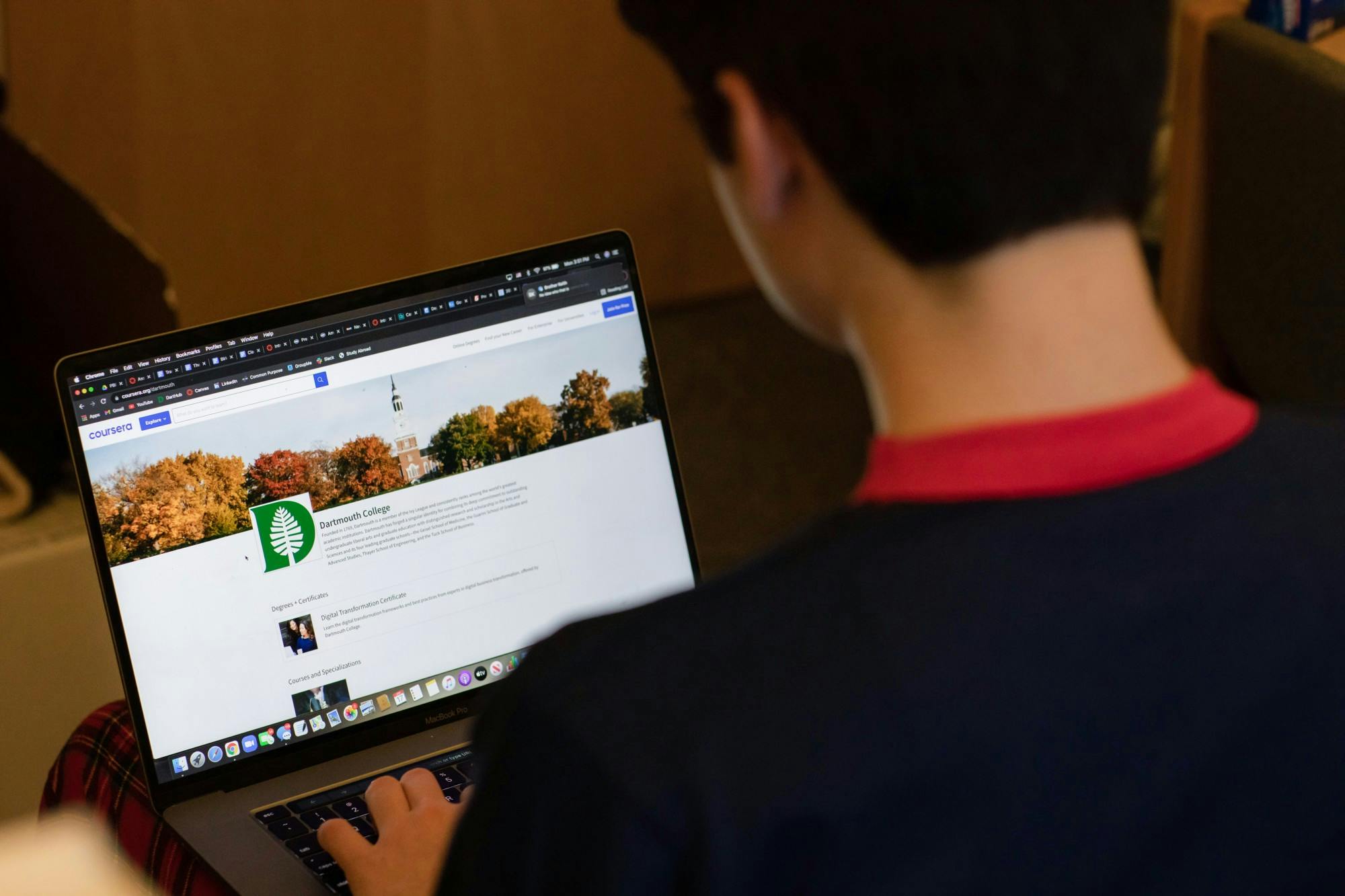Two months after the announcement of Dartmouth’s partnership with online education service Coursera, one course has seen a successful start on the platform, and a second launched Jan. 17.
The first course, “Energy Justice: Fostering More Equitable Energy Futures,” launched on Nov. 20 and has seen “fantastic” engagement with 184 users, according to Irving Institute academic director Amanda Graham, who developed the course and is the instructor. The second course, “Digital Transformation,” already has 40 learners enrolled.
Coursera chief content officer Betty Vandenbosch wrote in an emailed statement that Coursera is “pleased to welcome Dartmouth” as a partner to the platform, as “millions of learners around the world will now have access to Dartmouth’s world-class faculty and deep expertise.”
Users are already taking advantage of Dartmouth’s new online resources: Graham said that the course has a relatively high completion rate of 6.5%. As of Jan. 17, the course had over 4,400 recent views.
“I haven’t done this before, so I think that [having] any learners is fantastic,” Graham said. “The hope is that it will continue to snowball in terms of views and enrollments and completions for the course.”
Engineering professor Geoffrey Parker, one of the instructors of the “Digital Transformation” program alongside fellow engineering professors Vikrant Vaze and Elizabeth Murnane, has developed several online courses during his time at the College, though this will be his first to launch on Coursera.
“This is not my first online course … [but] we don’t know how it’s going to go,” Parker said. “We hope [viewers] will like the content, but we don’t know if our processes for… live sessions are debugged.”
The courses also had very different development processes from traditional courses. While Parker, Murnane and Vaze adapted their in-person courses to an online format, Graham developed her course from scratch.
Graham said that the development process for her online course was “really challenging,” as in the past she had only taught courses that the College held live and in person. “Energy Justice” is a completely asynchronous course, with pre-recorded videos and no live sessions. She recorded “a couple of dozen,” seven-to-10-minute videos for the course in order to make it “really flexible” for users while still “pack[ing] in that material.”
Graham said that despite these challenges, she believes the process of developing her course has made her a better teacher.
“It made me get much more focused,” she said. “This really sharpened the focus on learning outcomes and objectives and on how to be as targeted as possible [while] respecting students’ time.”
Parker said that his biggest challenge in developing course material was ensuring that it would be accessible to a wide range of students who could be taking the course from all over the world, because it will be more difficult to “react and adjust on the fly” than it would be in a class held over Zoom.
“When you’re teaching live, you can see in [students’] eyes if people are paying attention,” he said. “I can adjust in real time when a class doesn’t get it — I’ll be like, ‘oh, okay, let me take 10 minutes.’ You can’t do that in this environment.”
Parker said that in order to help predict some potential areas of confusion for students, he worked with members of Dartmouth’s Learning Design and Technology team — including assistant director of learning design and technology Erin DeSilva and learning and technology associate Dushyandhan Yuvarajan — who he said were “great partners” throughout the development process.
Both Graham and Parker see the partnership as an important step forward in Dartmouth’s progression towards digital learning.
“I see online learning as a tool, like I see the printing press as a tool or like I see the computer or the internet as a tool — it’'s another tool in our toolkit,” Graham said. “We are in the process right now of discovering what it works well for, and that's where we need to amplify our use of it.”
Parker said that he views mastering online learning as “mission critical for higher education,” as “the world is changing around us.”

Lauren ('23) is news executive editor for The Dartmouth. She is from Bethesda, Maryland, and plans to major in government and minor in public policy.




